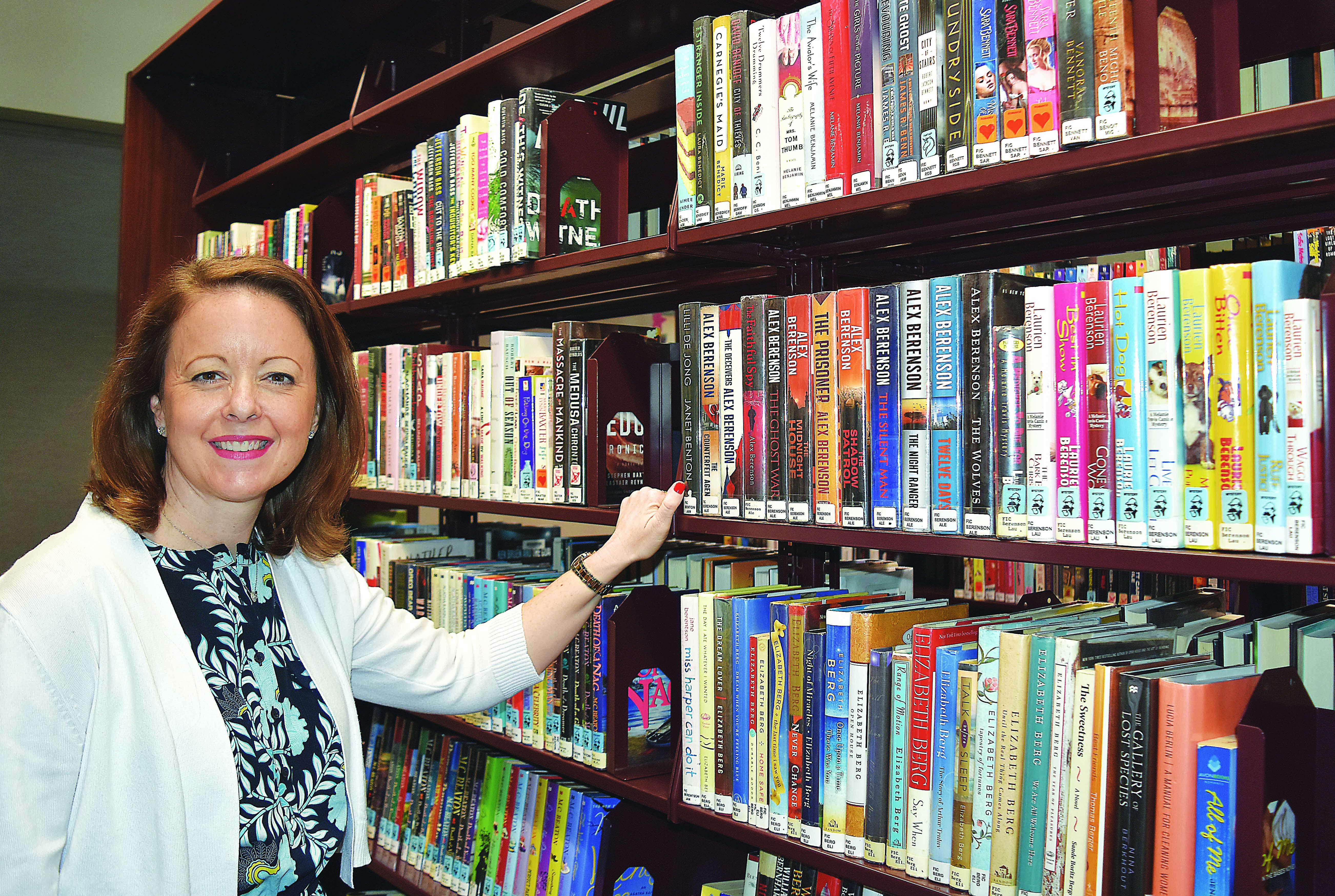
An Oxford woman is being recognized for her efforts to advance literacy in metro Detroit.
Julie Fracker is one of eight women who have been selected to receive Literacy Heroine awards from the Association for Women in Communications (AWC) Detroit Chapter.
“It’s a huge honor,” said Fracker, who works as director of communications at the Cranbrook Academy of Art and Art Museum in Bloomfield Hills
Established in 1938, the AWC Detroit Chapter connects women from various communications professions and supports their advancement.
Fracker is being recognized for her service as a member of the Oxford Public Library Board of Trustees. She was appointed in November 2014 and elected in 2016. She currently serves as board secretary.
The awards ceremony will take place on June 13 at The Detroit Writing Room on Washington Blvd. It’s a space where writers, creative individuals and entrepreneurs can work on everything from novels to business plans.
Although Fracker is “proud” to represent the library and “bring attention” to the important role libraries play in communities, Fracker feels “a little strange” getting this award because she believes it’s the librarians who are “on the frontline, doing all the work.”
“Our librarians do such a tremendous job,” she said. “If through my position I can help them continue to get the resources they need to (keep up that) good work, then I’m happy to do it.”
Library Director Bryan Cloutier couldn’t say enough good things about Fracker.
“Absolutely, she’s an asset to our board,” he said. “It’s an honor to work for Julie and having her on our board has been a complete pleasure.”
Cloutier noted her communications background has been a valuable resource.
“She’s always providing insight into ways that we can better market the library and its services,” he said.
Fracker joined the library board as a way to give back to a local institution that had benefited her sons Ben, 16, and Charlie, 13, for years.
“When my kids were little, we lived at the library,” she said. “My kids have grown up at that library. It was a really important part of their childhood.”
She thought that as the mother of young children, she could bring “an important voice to the table” by advocating for the needs of students and families.
Cloutier agreed.
“She brought a perspective to the board that we hadn’t really had in a long time,” he said. “Everybody on the board contributes pretty much equally, but certainly her voice has been appreciated.”
Fracker disagrees with people who say libraries are no longer needed because of the internet and changing technologies.
She believes libraries are “still the heart of the community.” She said they provide groups with a place to meet and internet access for people who don’t have it at home.
According to Fracker, “there’s still a large segment of our community” that needs to get online to search for jobs and keep track of their children’s school work, but can’t because they lack the means.
“Providing that free service (to them) is invaluable,” she said.
The internet is no substitute for libraries, in Fracker’s mind, because students conducting research “still need that personal touch” that librarians provide when it comes to helping separate good information from bad, fact from fiction.
Given the plethora of information that’s available on the World Wide Web, Fracker said, “It’s hard to decipher what’s real and what’s not.”
Libraries continue to be relevant, in Fracker’s opinion, because they are more than just places “to go check out a book.”
For example, at the Oxford library, the youth services department, under the leadership of Kim Burean, added more than 100 toys and games specifically designed to help children and teens with special needs develop speech, language and reading skills, social skills and motor skills, both fine and gross.
“I think there are people from other communities that come to our library specifically for that,” Fracker said.

Leave a Reply